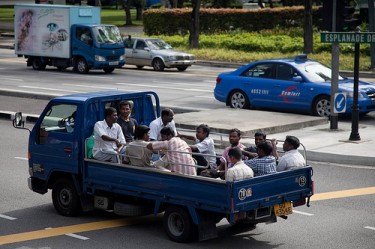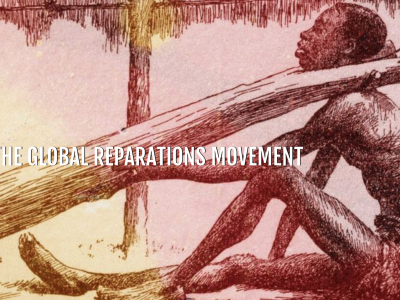싱가폴 정부가 최저 임금제를 실행해야 할까? 최근 홍콩에서 최저 임금제가 도입된 후, 싱가폴에서도 노동자 최저 임금을 규정해야 하는지 이야기가 활발히 진행되고 있다.
무역, 산업, 인적자원부 장관인 리이샨, (Lee Yi Shyan)은 최저 임금제에 대해 반대하며 이렇게 말했다.
By investing in our human resources, by encouraging our companies to innovate and by helping our low-wage workers acquire new skills, we’re confident that we can grow as a whole, and grow inclusively. The concept of a minimum wage policy is appealing politically but its implementation is not without pitfalls.
The Onlie Citizen에 기고한 스테파니 촉, (Stephanie Chok)은 최저 임금제가 가난한 노동자들에게 도움이 될 것이라고 말했다.
The point, ultimately, is to equalize the labour market and increase not only the earning power but also the bargaining powers of the working poor – powers that were gradually eroded over the years. Ensuring they are paid a fair wage that reflects current living costs is just a step in this direction, but one that should be taken.
럭키 탄 (Lucky Tan)은 최저 임금제가 시장을 왜곡하고 노동 창출에 해가 된다는 의견에 대응하였다.
A minimum wage, if properly set, is the income required for decent living in Singapore. It only distorts the market and hurt the employment of workers when you have an economy dependent (on) low wages and many workers (are) currently employed below the minimum wage.
New Asia Republic은 최저 임금제에 대해서 반대하는 의견을 내놓았다.
Surely, it appears that a minimum wage is what we need in Singapore to help the lower wage workers. Yet there is more than it meets the eye. Such an analysis based on an individual worker’s well being without consideration to the co-workers, employer, economy and consumer, is myopic
It is important to acknowledge every individual has a place and value in the society, regardless of profession, race, qualifications or family background. The value of each individual in the society is not for the State to determine but up to each individual’s ability to contribute and value add his/her firm in the economy.
My Little Corner는 노동자들을 돕기위해 “규정(명시된 기준)” 을 세우는 것을 제안하였다.
Singapore need not enact the Minimum Wage law. They can just issue guidelines on the Minimum Wage. The reason is quite simple. If you look at the objective, it's to determine the minimum wage needed to survive in Singapore. Therefore, it should be up to the employers to determine the job scope needed in order to justify hiring that person.
transitioning.org은 최저임금제가 이미 여러 선진국들에 존재한다는 것을 상기시켰다.
Its still a profound mystery why a economic powerhouse country like ours has so much reservation implementing minimum wage policy to better protect its vulnerable rank and file workers. Most first world countries and even third world countries have minimum wage policy in place so that workers have access to reasonably decent wages when they put in their fair share of work.
Singapore Notes에 따르면, “최저임금제”는 이미 도입되어 있는 것 같다.
The reality is that minimum wage exists in Singapore. The minimum starting pay for a cabinet minister is $1.5 million, regardless of not being backed by a single ballot cast in his name, not possessing prior track record in political office, or inexperience in managing a budget for a national mega project. The minimum for a senior minister is $3 million. You know what the top dog pays himself. And there are the minimum wage levels for permanent secretaries, superscale officers and a whole catalogue of fat cat civil servants.
The Mind Game는 최저임금제 도입 문제에 대하여 나왔던 의견들을 정리하였다.
Personally, I think its unnecessary, if there are really other supply-demand considerations for other jobs, let the employers offer higher wages on their own. The purpose of the minimum wage is for the standard of living of a worker and not for the demands of the industry and market.
Yawning Bread는 싱가폴 정부의 노동복지 제도에 대해 우호적이다. Words of the Cze 역시 이 제도를 확장하는데 동의한다.
putting in place a minimum wage is an effective and efficient method of intervening in the market to generate distributive social welfare, but only if there is a substantial lot of low-income workers languishing below the bar to be set. Otherwise it’s really an unnecessary distortion in the labour market.
라비 필레몬 (Ravi Philemon)은 생계급여 도입이 정치적으로 더 나은 방법이라고 한다.
By paying people a `living wage,’ we show respect for them and what they do. We enable them to give something back. They have the income to spend more, local businesses, professionals, schools and even religious organisations, benefit. We also benefit as a community because people who are able to meet their basic needs by working a 44-hour week have time and energy for their family, their faith community, and civic life.







